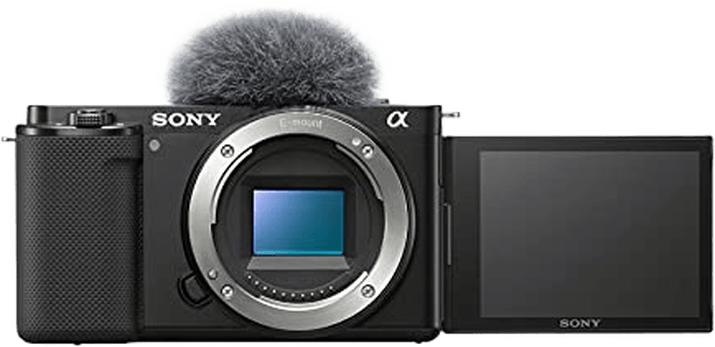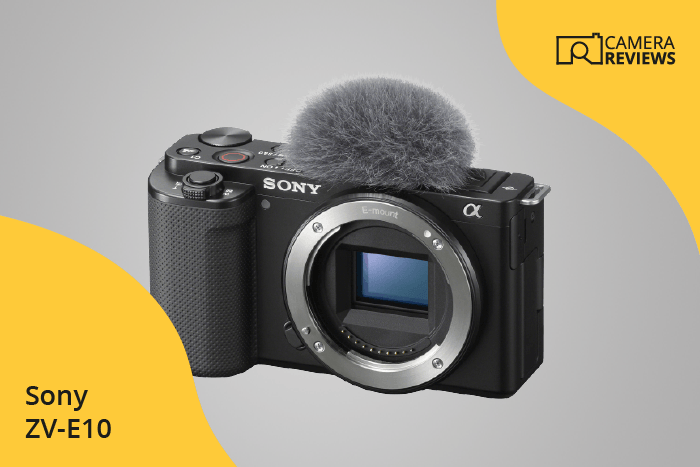Sony ZV-E10 Specs and Scores

The Sony ZV-E10 scores a solid 65/100 in our evaluation. Announced on July 27, 2021, and priced at $700, this mirrorless camera offers competitive performance in today’s market. With dimensions of 115 x 64 x 45mm and weighing 343g (0.76lbs), the ZV-E10 is both compact and lightweight, making it a convenient choice for various photography situations.
Considering its specifications, the Sony ZV-E10 proves to be a reliable option for those seeking a modern, user-friendly camera.
Sony ZV-E10 Overview and Optics
The optics of the Sony ZV-E10 receives a score of 69 out of 100. This camera features a 24-megapixel APS-C CMOS sensor and is powered by the Bionz X processor. With a DXOMARK sensor score of 86, it delivers high-quality images. The shooting speed of 11 frames per second allows for capturing fast-paced scenes easily.
The Sony E lens mount offers a wide range of lens options for users to enhance their photography experience. However, the camera lacks image stabilization, which might affect image quality in certain situations. The 4:3 aspect ratio provides a classic look to the images.
Considering these specifications, the Sony ZV-E10 performs well in today’s market, offering a good balance between image quality and performance. Although the optics score is not the highest, the camera remains a solid choice for enthusiasts and professionals alike.
Sony ZV-E10 Video Performance
The Sony ZV-E10 receives a video score of 91/100. This high score reflects its impressive video capabilities, which include a 4K max video resolution and a max video frame rate of 120fps. With these specifications, the camera captures sharp and detailed footage that meets the demands of today’s market.
The camera also boasts a max video dimension of 3840 x 1920, ensuring that users can create high-quality content in various formats. The built-in time-lapse functionality adds to its versatility, allowing users to experiment with different shooting styles and techniques.
The Sony ZV-E10 stands out as a strong contender in the video category, thanks to its powerful specifications and features. Its performance in this area makes it a reliable choice for filmmakers and content creators seeking a camera that delivers top-notch video quality.
Sony ZV-E10 Features and Benefits
The Sony ZV-E10 scores 68 out of 100 in terms of features. The camera comes with a 3-inch screen and a resolution of 920,000 dots. Users will find a touchscreen and a flip screen, making it convenient for various shooting angles and vlogging. However, the camera lacks GPS functionality, which might be a drawback for some users.
In today’s competitive market, the presence of WIFI and Bluetooth connectivity in the Sony ZV-E10 is crucial. These features allow users to easily transfer and share images or videos, and control the camera remotely. Though the camera may not have the highest score, it still offers a solid set of features that cater to the needs of content creators and casual photographers.
The Sony ZV-E10 holds its ground with essential features and connectivity options, making it a reliable choice for users seeking a versatile camera.
Sony ZV-E10 Storage and Battery
The Sony ZV-E10 scores a 24/100 in storage and battery. It has one memory card slot, accepting SD, SDHC, SDXC, and Memory Stick Pro Duo cards. With a battery life of 440 shots, the ZV-E10 is powered by an NP-FW50 battery. Unfortunately, this camera does not have USB charging capabilities.
Considering the current market, the Sony ZV-E10’s storage and battery are relatively average. Single memory card slots are common, but USB charging is becoming increasingly popular. The battery life of 440 shots is acceptable, but not outstanding. The Sony ZV-E10’s storage and battery performance is satisfactory but leaves room for improvement.
Sony ZV-E10 Alternatives
Do you want to know how the Sony ZV-E10 compares to its competitors? Have a look at the most popular comparisons for this camera below:
- Nikon Z30 vs Sony ZV-E10
- Sony ZV-1 vs ZV-E10
- Canon EOS M50 Mark II vs Sony ZV-E10
- Sony a6400 vs ZV-E10
- Canon EOS R10 vs Sony ZV-E10
- Nikon Z50 vs Sony ZV-E10
Sony ZV-E10 FAQ
Does the Sony ZV-E10 Have Built-in Image Stabilization?
The Sony ZV-E10 does not have built-in image stabilization. However, it supports lenses with Optical SteadyShot (OSS) for improved stabilization during photo and video capture.
Does the Sony ZV-E10 Support 4K Video Recording?
Yes, the Sony ZV-E10 supports 4K video recording at up to 30 frames per second, providing high-quality, detailed footage for content creators and videographers.
What Size Sensor Does The Sony ZV-E10 Have?
The Sony ZV-E10 features an APS-C sized sensor, which offers a good balance between image quality, low-light performance, and depth of field control for both photography and videography.
Does the Sony ZV-E10 Have a Dual Memory Card Slot?
No, the Sony ZV-E10 has a single memory card slot, which supports SD, SDHC, and SDXC cards for storing photos and videos.
Does the Sony ZV-E10 Have a Touch Screen?
Yes, the Sony ZV-E10 features a touch screen that enables easy focus point selection, menu navigation, and other camera adjustments for a user-friendly experience.
Does the Sony ZV-E10 Have Wi-Fi and Bluetooth?
Yes, the Sony ZV-E10 is equipped with both Wi-Fi and Bluetooth connectivity, allowing for easy transfer of files and remote control of the camera using compatible devices.
Does the Sony ZV-E10 Have GPS?
No, the Sony ZV-E10 does not have built-in GPS functionality. Users will need to rely on external devices or software to geotag their photos.
Is the Sony ZV-E10 Weather Sealed?
No, the Sony ZV-E10 is not weather sealed. It’s recommended to use caution and protect the camera when shooting in harsh environments or changing weather conditions.
Does the Sony ZV-E10 Have a Built-in Flash?
No, the Sony ZV-E10 does not have a built-in flash. Users will need to attach an external flash or use alternative lighting sources for low-light photography.

